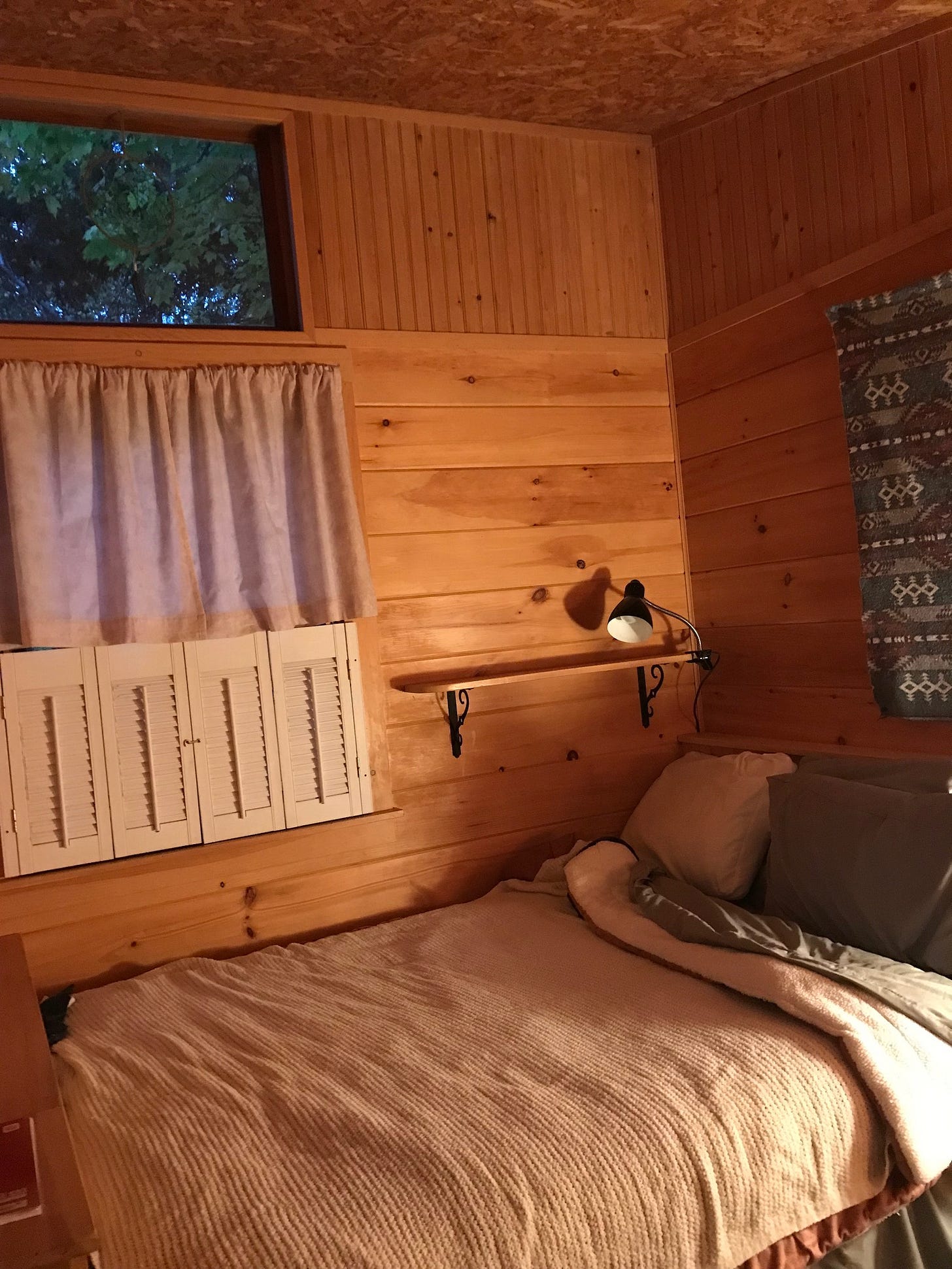Alone
I felt nervous about staying in a cabin, located off a dirt road, alone in the Maine woods. But to my surprise, I am wildly happy here. The blond wood, the carpentry, and design were very pleasing—and there were tall windows for light.
The cabin only had a space heater (not to be used when sleeping), and with temperatures falling to 39°F (4°C), I knew it was a hot-chocolate type of night.
There was no internet or signal, so I started reading Admiral Richard E. Byrd’s Alone. This was the perfect setting to read it. Byrd chose to stay alone at the Advance Weather base during the winter night of 1934 in a cabin sunk beneath the surface. He writes:
“Aside from the meteorological and auroral work, I had no important purposes. . . . Nothing whatever, except one man’s desire to know that kind of experience to the full, to be by himself for a while and to taste peace and quiet and solitude long enough to find out how good they really are. . . . There was no end to the books that I was forever promising myself to read; but, when it came to reading them, I seemed never to have the time or patience. With music, too, it was the same way: the love for it—and I suppose the indefinable need—was also there, but not the will or opportunity to interrupt for more than momentarily the routine which most of us come to cherish as existence. . . . Out there on the South Pole barrier, in cold and darkness as complete as that of the Pleistocene, I should have time to catch up, to study and think and listen to the phonograph” (pp. 3–7).
Byrd’s idea defined my time here in the cabin—I was reading. I stopped a bit to listen to the only song that I ever purchased and downloaded on my computer—Deuter’s “Enchanted Summer Night.” It’s a magical song, like what fairies would play at a woodland gathering.
While I identified with all that Byrd said, I also felt that a woman’s aloneness was different than a man’s. There was comfort, hot chocolate, beauty, coziness, lightness of spirit, and oneness with nature—especially with the trees around the cabin, a living presence made known by the wind. When I am alone, I feel a sense of perfect well-being, wholeness, carefree abandon, and contentment. I could stay here a long time.
Byrd stayed in his polar cabin for six months and nearly died. What he went through to survive is the greatest adventure story that I have read.
Why did Thoreau leave Walden after nine months? Would daily living dull the experience, making the magic disappear? Thoreau answers that question: “I left the woods for as good a reason as I went there. Perhaps it seemed to me that I had several more lives to live, and could not spare any more time for that one.” At what point, does a person look around and say this is the best life on earth? For Thoreau, the answer would be never. For me, the answer would be at every moment of existence.




You had me at "Deuter’s “Enchanted Summer Night.” It’s a magical song, like what fairies would play at a woodland gathering."
Great photo and description of your experience. Recalling Thoreau, perhaps solitude is a learned skill, necessary for a complete and full life. I am reminded of a comment by Thich Nhat Hanh: "Our true home is what the Buddha called the island of self, the peaceful place inside of us. Oftentimes we don’t notice it’s there; we don’t even really know where we are, because our outer and inner environment is filled with noise. We need some quietness to find that island of self."